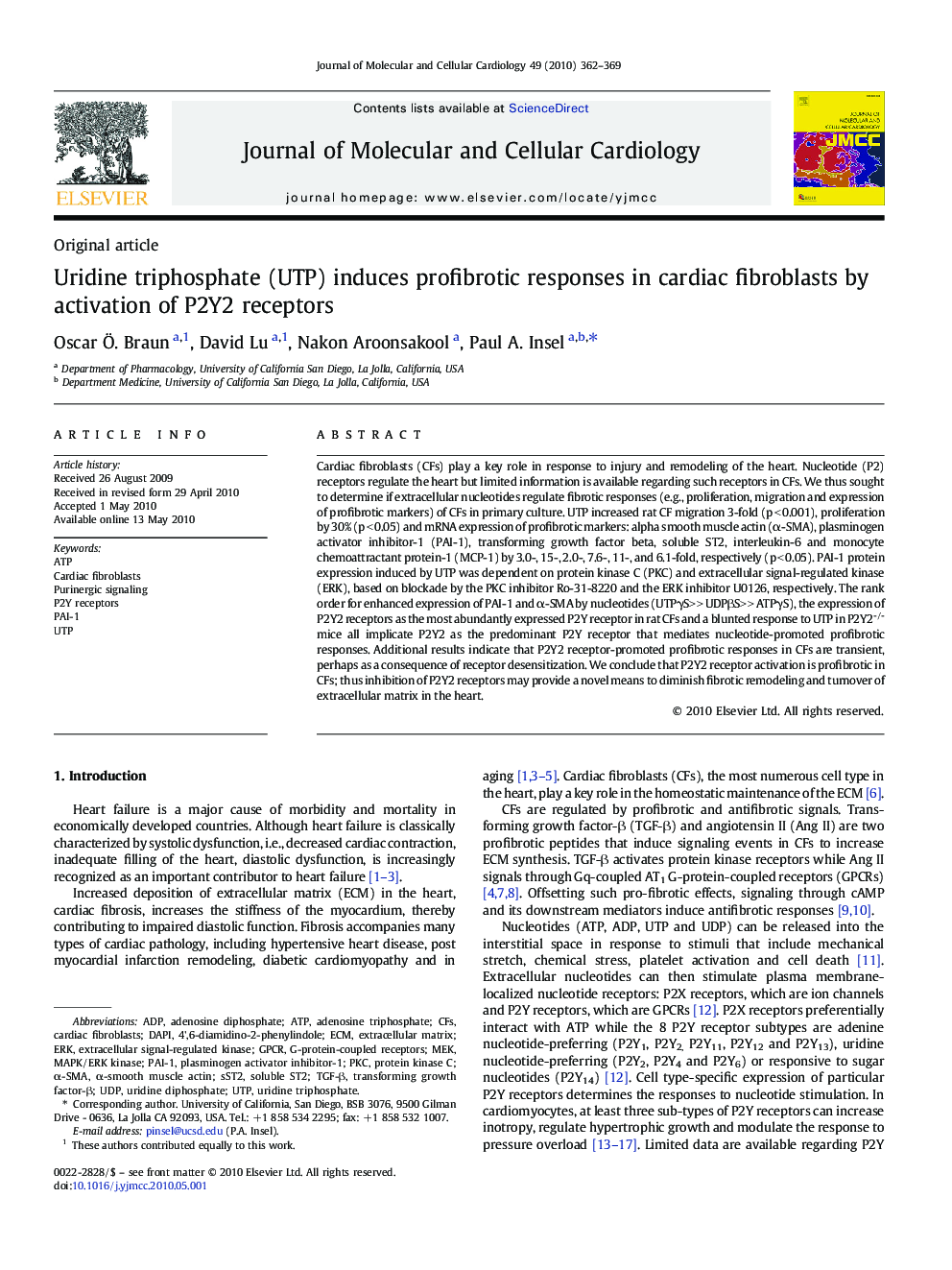| Article ID | Journal | Published Year | Pages | File Type |
|---|---|---|---|---|
| 2191011 | Journal of Molecular and Cellular Cardiology | 2010 | 8 Pages |
Cardiac fibroblasts (CFs) play a key role in response to injury and remodeling of the heart. Nucleotide (P2) receptors regulate the heart but limited information is available regarding such receptors in CFs. We thus sought to determine if extracellular nucleotides regulate fibrotic responses (e.g., proliferation, migration and expression of profibrotic markers) of CFs in primary culture. UTP increased rat CF migration 3-fold (p < 0.001), proliferation by 30% (p < 0.05) and mRNA expression of profibrotic markers: alpha smooth muscle actin (α-SMA), plasminogen activator inhibitor-1 (PAI-1), transforming growth factor beta, soluble ST2, interleukin-6 and monocyte chemoattractant protein-1 (MCP-1) by 3.0-, 15-, 2.0-, 7.6-, 11-, and 6.1-fold, respectively (p < 0.05). PAI-1 protein expression induced by UTP was dependent on protein kinase C (PKC) and extracellular signal-regulated kinase (ERK), based on blockade by the PKC inhibitor Ro-31-8220 and the ERK inhibitor U0126, respectively. The rank order for enhanced expression of PAI-1 and α-SMA by nucleotides (UTPγS> > UDPβS> > ATPγS), the expression of P2Y2 receptors as the most abundantly expressed P2Y receptor in rat CFs and a blunted response to UTP in P2Y2-/- mice all implicate P2Y2 as the predominant P2Y receptor that mediates nucleotide-promoted profibrotic responses. Additional results indicate that P2Y2 receptor-promoted profibrotic responses in CFs are transient, perhaps as a consequence of receptor desensitization. We conclude that P2Y2 receptor activation is profibrotic in CFs; thus inhibition of P2Y2 receptors may provide a novel means to diminish fibrotic remodeling and turnover of extracellular matrix in the heart.
